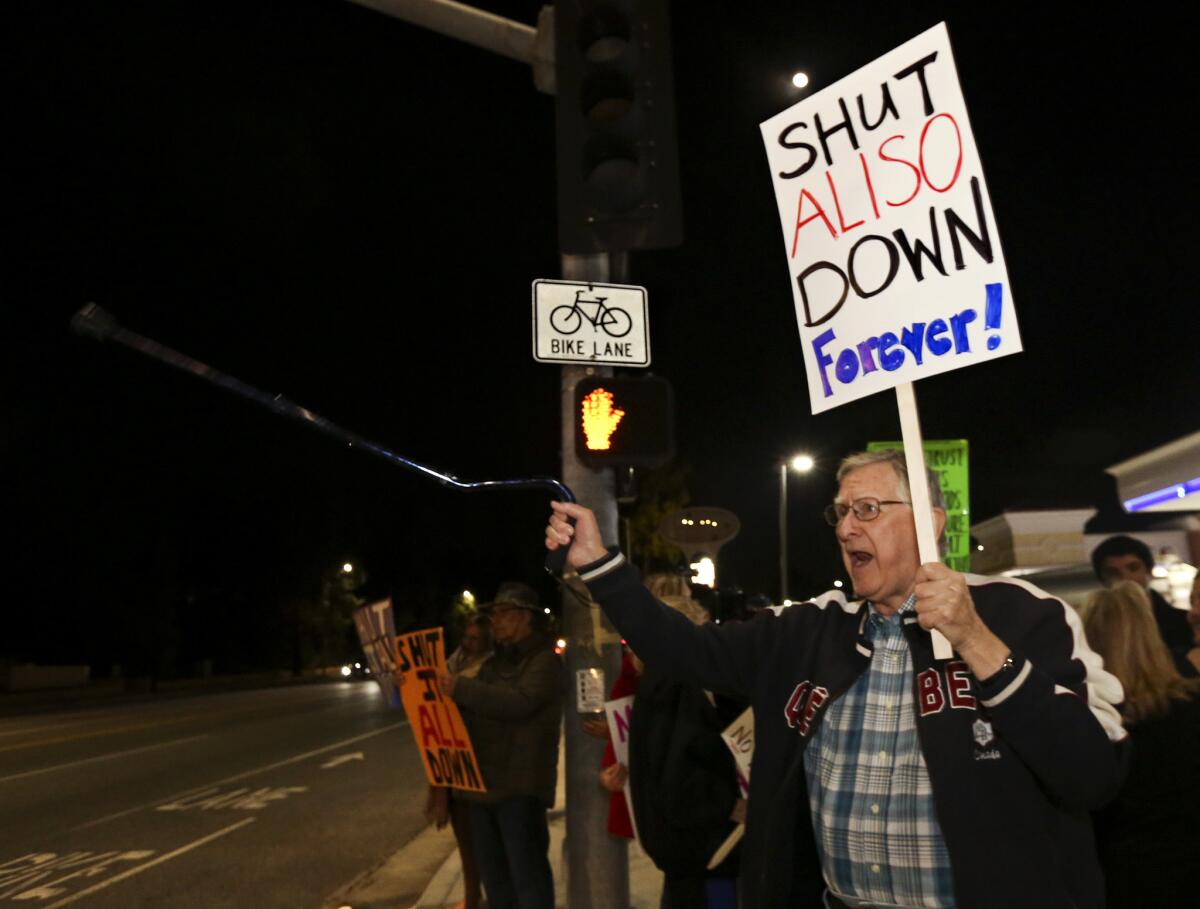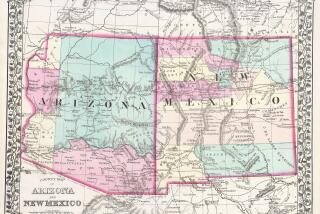House panel OKs tougher gas storage rules in bill influenced by the Aliso Canyon leak

John Gutierrez, 77, a member of the group Save Porter Ranch, joins a February protest calling for Southern California Gas’ Aliso Canyon storage facility to be shut down.
Tougher gas storage rules inspired by California’s Aliso Canyon storage facility leak would be required under a bill approved unanimously by the House Transportation and Infrastructure Committee on Wednesday.
The bill, which reauthorizes the Department of Transportation’s pipeline safety program for four years and sets new federal safety standards requirements for the Pipeline and Hazardous Materials Safety Administration, also includes language proposed by Rep. Steve Knight (R-Palmdale), who represents the Porter Ranch area affected by the leak.
Knight’s portion of the bill requires the Pipeline and Hazardous Materials Safety Administration to set federal minimum safety standards for underground natural gas storage facilities within two years. Under the bill, standards would be based on a consensus of what the industry considers to be safe methods, and would have to take into consideration the resulting costs to consumers and businesses.
FULL COVERAGE: Porter Ranch gas leak >>
The Protecting Our Infrastructure of Pipelines and Enhancing Safety Act of 2016, sponsored by Rep. Jeff Denham (R-Turlock), also reauthorizes the Transportation Department’s pipeline safety program for four years and sets new federal safety standards requirements.
“It was an opportune vehicle and it seemed like the right place to put something that was heavily needed in our district,” Knight said.
A vote hasn’t been scheduled, but Knight said he hopes the bill will go before the House in May.
The nearly four-month leak at Southern California Gas Co.’s Aliso Canyon facility displaced thousands of Porter Ranch families and closed businesses and schools. It was capped in February.
Though the Pipeline and Hazardous Materials Safety Administration has the authority to regulate natural gas storage safety standards, it has left the regulation of Aliso Canyon and most other storage facilities to the states.
Rep. Brad Sherman (D-Porter Ranch) said he’d like a few tweaks, but overall is pleased. He had filed legislation to require the agency to set standards, and asked for the regulations to be set within 180 days, rather than two years. He also prodded the Obama administration to commit to using its existing authority to set those standards.
Sherman said he’s worried that the bill focuses too much on how the regulations will affect the gas industry and too little on safety, and doesn’t define who gets a say in defining the safety standards.
“There are some in the industry that think consensus standards mean that all the oil companies agree,” Sherman said.
Knight disagreed, saying it balances public safety and thoughtful regulation.
The bill allows state regulations to exceed the federal rules, and Sherman said he expects California will implement stricter standards.
“When I’m fighting for nationwide standards, I’m fighting for the other 49 states that have not learned the lessons of Aliso Canyon as well as we have,” he said.
Follow @sarahdwire on Twitter
Read more about the 55 members of California’s delegation at latimes.com/politics
ALSO:
Strong odors spark new fears in Porter Ranch and prompt an investigation
Company aims to resume injecting natural gas in Aliso Canyon storage field this summer
229 leaks found in state’s underground gas storage facilities, most considered minor
This post was updated April 21 to fix the rule making timeline Rep. Brad Sherman proposed. It was originally posted April 20.
More to Read
Get the L.A. Times Politics newsletter
Deeply reported insights into legislation, politics and policy from Sacramento, Washington and beyond. In your inbox three times per week.
You may occasionally receive promotional content from the Los Angeles Times.







